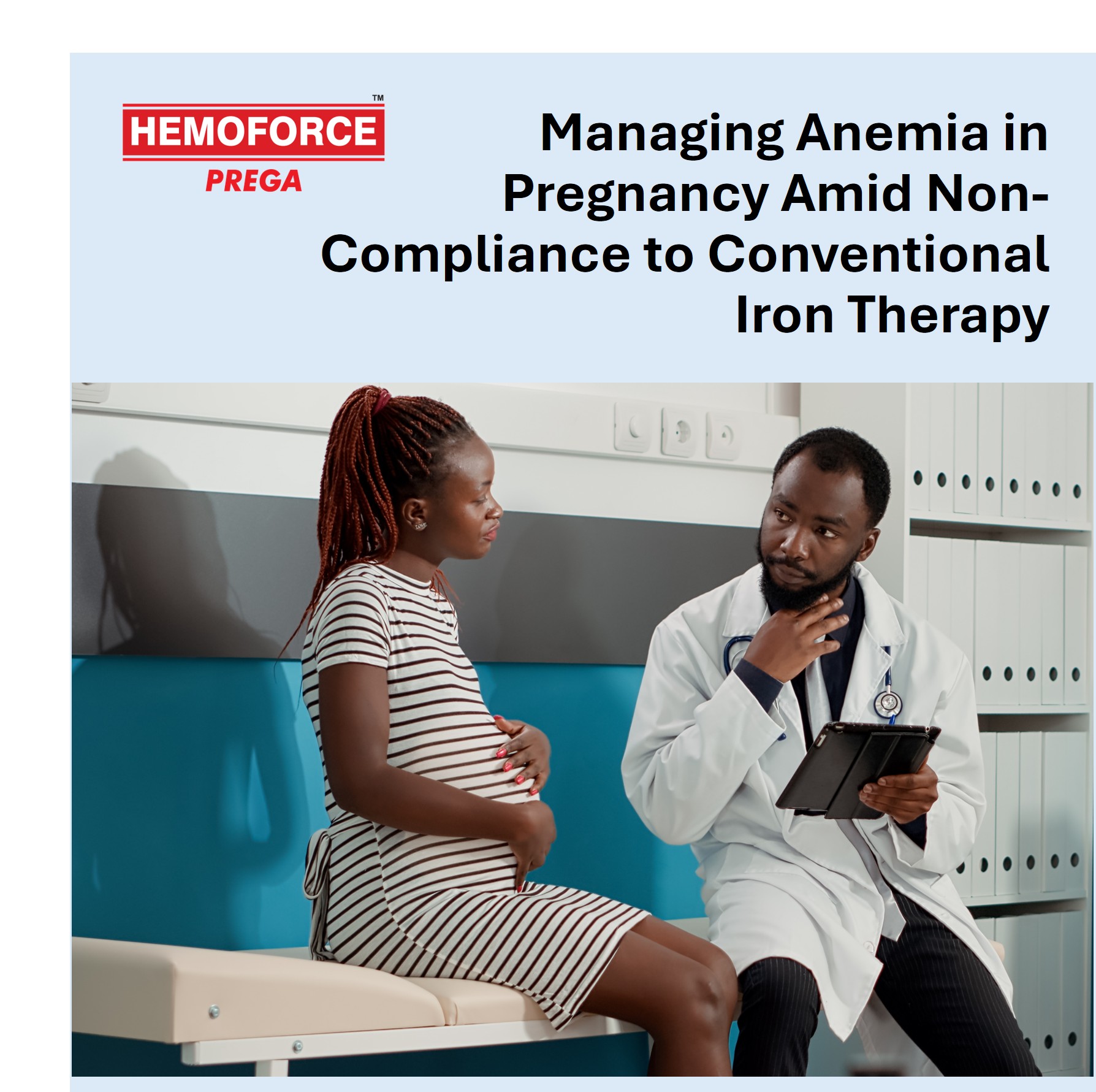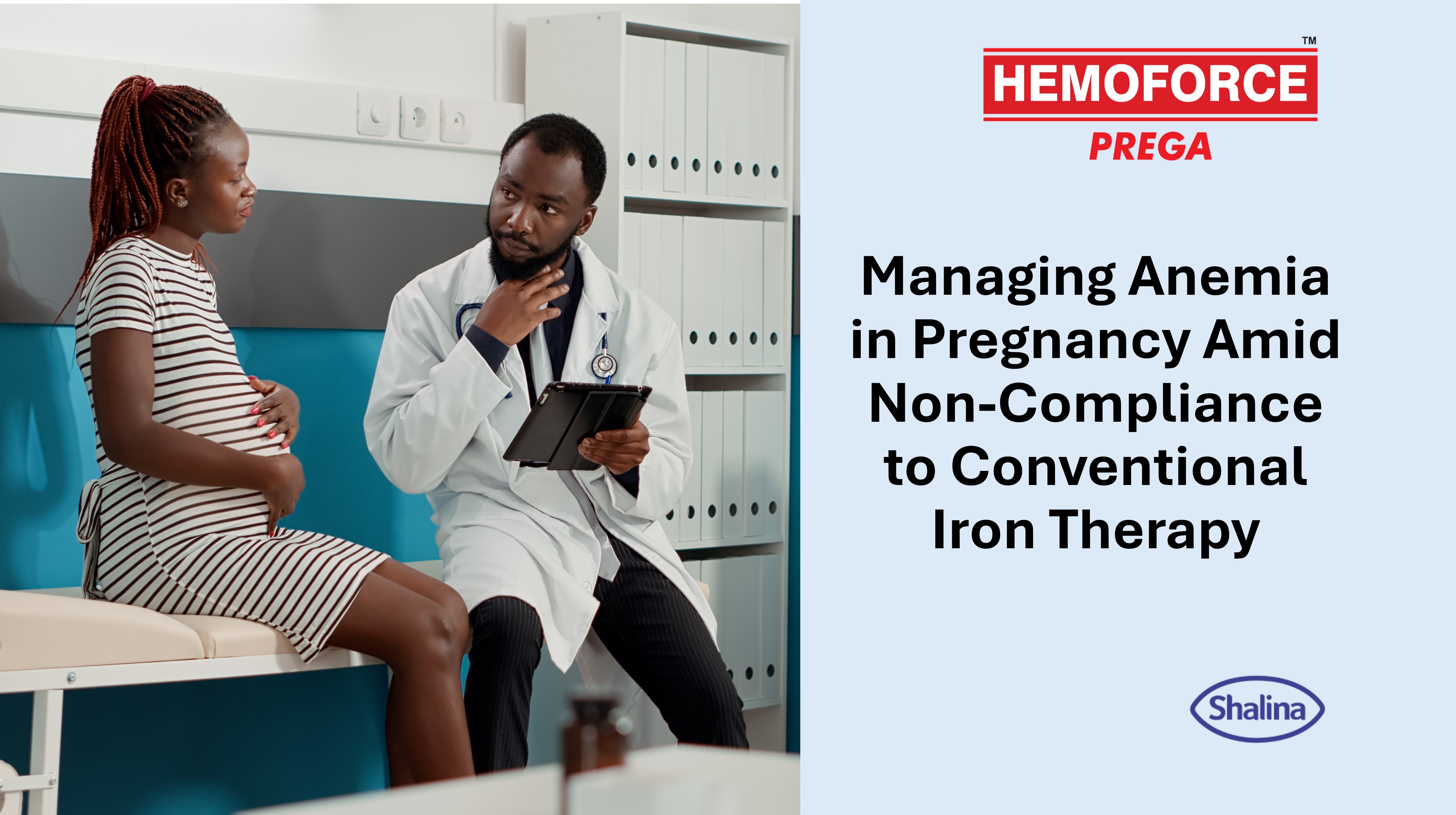A 28-year-old pregnant woman diagnosed with iron deficiency anemia (IDA) and poor adherence to conventional iron supplements demonstrated significant improvement with Hemoforce Prega Capsule, an iron polymaltose complex (IPC)-based therapy known for its superior tolerability and efficacy.
The patient initially presented with fatigue and generalized weakness. Laboratory investigations confirmed IDA, with hemoglobin levels below 9 g/dL and serum ferritin under 12 mcg/L. Due to intolerance to standard ferrous sulphate therapy, she was transitioned to a once-daily Hemoforce Prega Capsule. The formulation includes IPC, folic acid, vitamin B12, vitamin C, zinc, copper, and manganese. At the 1-month follow-up, the patient reported relief from symptoms and improved adherence to therapy. Hematological parameters, showed notable improvement, highlighting the clinical benefit of IPC-based therapy in managing IDA during pregnancy, especially in cases of poor compliance to traditional iron salts.

